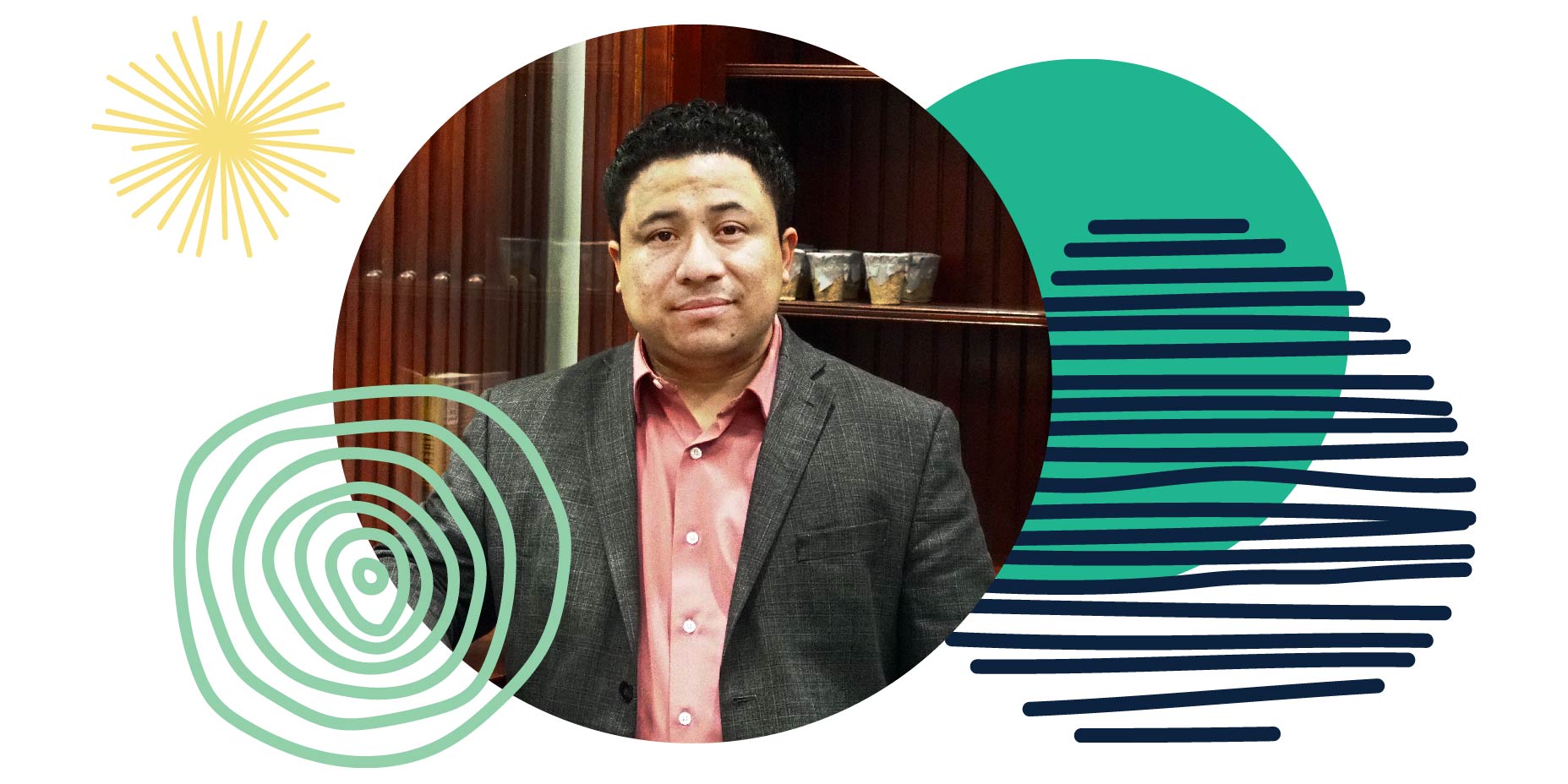
Written by Manuel Iris, Writer-in-Residence, Cincinnati & Hamilton County Public Library
Our 2023 Writer-in-Residence, Manuel Iris, is a poet, essayist, and teacher. Attend his upcoming workshops and writers' office hours. And, listen to him as host of CHPL's "Inside the Writer's Head" podcast.
Like every year, National Poetry Month arrives for all those who, in the United States, enjoy writing and reading poetry. Libraries and cultural centers are filled with books and mentions of poets, and with the poets themselves carrying out readings, conversations, lectures, or book signings. Social media is filled with well-intentioned writing challenges (a poem a day, for example) and quotes from well-known or very obscure poems. Whoever is dedicated to poetry in this country is, of course, very busy in April.
These are all public and necessary celebrations of an art that, like any other spiritual exercise, is done primarily in privacy. I mean by this that, even if one writes or thinks about poems in the company of others at a university, a literary workshop, or a writing retreat, the poetic experience is an essentially individual, intimate endeavor. That is why I want to talk briefly about some issues that poets, readers, and cultural institutions of all kinds should consider during these celebrations.
Supporting Poetry
A great way to support poetry is to pay poets for what they do, even if the amounts are just a token of appreciation. Sadly, many cultural institutions think they are doing the poet a favor when they ask her to read or talk for free. They have been kind enough to receive the artist, show her work, and hive her a space, but in reality they are the ones who receive the favor of the poet's time.
Institutions that do not offer payment for the poet's work must be, at least, aware that it is no honor for anyone to work for free, and that they are the ones who should feel indebted and grateful. That is why such institutions must, at least, take care of giving said poet all possible promotion, and treat her with respect. Every April, poets take the risk of filling themselves with unpaid work. Sometimes, of course, they have to do it. But nobody should do it too many times.
In the age of social media, another possible danger is that the poet (I'm talking about young or very young poets, above all) compares her "exposition" with that of others, and confuses this "fame" with the value of her poetry. To put it simply and end this point: poetry is what survives social media, and not what lives in it.
Forgetting about silence is a major temptation to which the poet must never give in. Poetry is a spiritual exercise with verbal consequences and, therefore, contemplation and silence, especially in this month, must be protected. I do not propose making silent retreats (nor do I disqualify them, on the other hand) since I understand that it is necessary, especially now, to build community, and that poetry is a privileged instrument to achieve that. I only insist on the fact that the poet must be careful not to lose her compass, and not to forget her own inner space when giving herself up to public life.
Poetry month can be an opportunity to step back and look at the place of the poet and her writing in the world, decide how that affects us, and how we can impact that synergy. It can be a moment of introspection about our trade: the opportunity to articulate or review our own poetics.
An Exercise of Freedom
In general, celebrating the National Poetry Month should be an exercise of freedom that helps us all to imagine or glimpse other, better possibilities of the human experience. It is an excuse to do what we love and should not be a reason for anxiety or sadness. If that happens to you, poet, remember what you love, why you approached this art form in the first place, and let that first motivation be your guide again. Poetry is a form of slowness. Don't hurry.
In summary: go to all the readings you want, write what you want, read what you want, and never let anything but that, whatever you want, be your guide in this month of freedom. National Poetry Month should be a pretext to get closer to poetic writing (that is, to ourselves and humanity as a whole) in the way that best suits each of us. It is also a month of thought and questioning: poets must dissent.
Everyone shall define their April, and their poetry, from within.
Attend Manuel's upcoming workshops and writers' office hours, opens a new window. And, listen to him as host of CHPL's "Inside the Writer's Head" podcast.


Add a comment to: National Poetry Month and Its Dangers